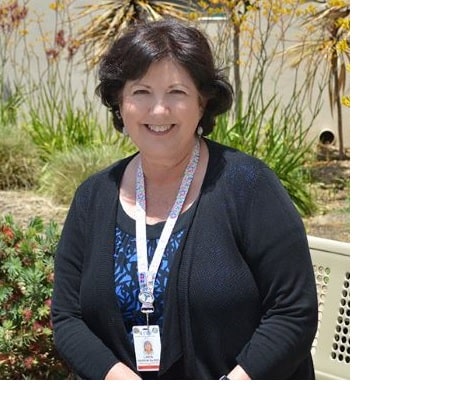10 Things Cancer Taught Me As A Survivor And An Oncology Social Worker

Before I was diagnosed with breast cancer 11 years ago I had a lot of theoretical knowledge of what being a cancer patient meant. Afterwards, I understood how terrifying it is to hear your name paired with the word CANCER.
I understood how scared the people I loved and who loved me were as well – in fact my sister’s anxiety was second only to mine.
I discovered that I knew a lot of survivors and these survivors form a sisterhood and they welcomed me and offered a place of support.
Three years after my treatment ended, I made a big career change and started working as a medical social worker in the Sharp Grossmont Hospital Cancer Center, straddling the world of patient and family member, survivor and now, oncology social worker.
Recently I spoke at my synagogue for Sharsheret, and was asked to reflect on a few things that having cancer taught me as a survivor and an oncology social worker. So here are my top ten, in no particular order:
- Cancer taught me what was important and what was just noise. I learned to look for the gifts rather than the losses. Having cancer is both a negative and positive experience. You get to decide how you want to look at it each day, or even each hour.
- Cancer takes its sweet time with you. I know it doesn’t feel like it, but most of the time you have plenty of time to get second opinions and to make the best decision for yourself. Rarely does cancer sweep in and kill you quickly. Sometimes it picks away at you bit by bit, but mostly it disappears after treatment and hangs around like a specter haunting you on occasion, particularly when you need to see your team for follow-up or labs or scans.
- Getting a cancer diagnosis is a traumatic experience. You need to recognize this and be kind to yourself and take time to process it. Sometimes that processing has to wait until you are finished with treatment and have a chance to look around and start to deal with what has happened. But make sure you take the time to process it, otherwise those unexplored emotions may surface and take you by surprise at very inopportune times.
- You will do as well as you can in the moment. I wore a bracelet for a few years that said “It is what it is” meaning I needed to let go of what I couldn’t control and focus on the moment. This also means you will have good days and bad days. Sometimes it’s all you can do to get through the day, but at the same time it cannot be 100% cancer all the time. You still need to live your life and have some fun.
- You can only make the best decision for yourself based on the information you have available at that time. As an example, eleven years ago my numbers suggested that chemo would be the best course of action for me. Now, if I presented with the same numbers it would not be suggested. Research changes cancer care almost daily, just like COVID research changes. So you need to take that in stride.
- Lots of people are going to offer advice and suggestions. You will need to learn how to thank them for their concern and change the subject. Listening to all these voices can make you more anxious, so you need to rely on your medical team for your guidance and direction. This doesn’t mean you shouldn’t get a second opinion, that’s always fine, but don’t become paralyzed by too much information. You can ask yourself if you’ve done everything you can do (seen the doctors, read widely, etc.) and then you need to address the emotions behind this desire to keep researching (usually anxiety and worry) and work on managing them.
- Remember you are also living through a global pandemic and despite what you may believe, no one is coping really well. If you get a cancer diagnosis during COVID it is truly unfair. We’ve all been traumatized so keep this in mind and make sure you make time and space for self-care.
- Get support – find a cancer buddy, talk to your oncology social worker, join a support group – letting others wrap you in support and understanding is essential in getting through this experience, because no one comes through cancer and looks like they spent a month at the spa.
- As an oncology social worker and a survivor here are the keys In a nutshell: Get support, do your research, control what you can and let go of the rest, and remember you always have a choice.
- You may find yourself questioning your future after cancer. That’s fine. Find your calling. Stay committed. Lean on your support system. Find joy where you can.
